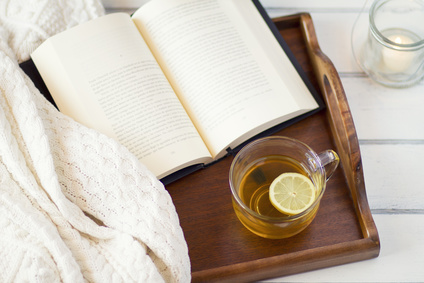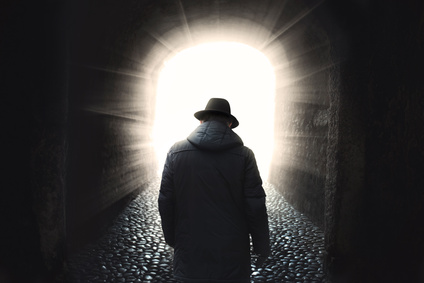I spent all of last week fighting a severe cold.
Not fighting, really. Just lying in bed while it pummeled me.
Some folks are masters at riding out a cold. Me? I’m cowed by the swagger of it. I crumble under its weight, pinned to the mattress, my world narrowed to the confines of my anxious mind. Without defenses to act as filter, the “what if” thoughts gain traction and I lie curled in my warm blanket believing that all of those books I’ve read on mindfulness and healing and treatments and nutrition are bunk. All of those words of wisdom didn’t slay the dragon. The dragon won.
Oh, boo hoo. Cue the violin. The cello. The bass, for cryin’ out loud.
Disgusted, I rise up. I’m done being sick! The surge of anger propels me to my feet, fumbling for thick socks, tucking a muffler around my throat, unwrapping a menthol lozenge, pulling on boots and jacket, flinging open the door and blinking at the thin winter sun, grateful for the blue sky. I walk the neighborhood and fill my senses with the signs of life. Life is bigger than the dragon. Life is everywhere. It’s in the oak trees that hold onto their stiff curled leaves. It’s in the squirrels dashing though fence holes carrying acorns in their jaws. It’s in the carload of children shoving each other in the back seat. It’s in the mossy roofs and the falcon cruising overhead with an eye for a thick brown mouse. It’s in the free little library stuffed with worn paperbacks that lean on each other for support. I saunter through the neighborhood and return home renewed in spirit but tired in body, my lymph glands swollen and painful from the work of draining, draining, draining.
There is always something to buckle our knees from behind. We prepare ourselves for the worst and hope for the best. It’s the only way.
When you’re feeling under the weather, here are ten steps to soothe your body, mind and soul as you weather the storm:
- Watch your thinking. Are your thoughts of the dreadful variety? Dwell on the opposite. For five minutes. Then ten. Then twenty. Be Shirley Temple at heart, Scarlett O’Hara in determination. Tell yourself: “I can choose to focus on my anxious thoughts, or I can choose to do what I can for myself in this moment to feel better.” Tell yourself: “I can choose to worry about this or I can be mindful of these thoughts and not spiral into the bottomless pit of anxiety.”
- Infuse yourself with healing energy. Here’s a short Qigong exercise to cleanse your lungs and clear away feelings of lethargy and sadness. Or try some of Donna Eden’s healing techniques, like this one to help a sore throat. If nothing else, her joyous vibe is a balm.
- Focus on what you love. The scruffy cat curled next to you. The man in the kitchen washing dishes. That kid who dreams of becoming an astronaut.
- Surround yourself with comfort. A soft blanket, your terrycloth robe, a book within arm’s reach, a fuzzy teddybear.
- Distract yourself. Watch funny movies. Read feel-good novels. I recommend The Rosie Project, anything by P.G. Wodehouse, or anything by Rosamunde Pilcher. Listen to audio books. Anything to distract you, to lift you from your lonely self.
- Take in nourishment. Warm broths. Herbal teas. Oatmeal. A protein smoothie. When you read, take in the inspirational words. When you walk, take in the abundance of life. Take in the memory of that fine day at the beach when a seagull kept you company and the waves rolled gently on the white sand.
- Let go. There’s nothing you need to do except allow your body to heal. You’re tired, so give in to the mattress. Let go of the body tension. Let go of those depressing thoughts that scratch at your throat.
- Drink up. Lots of water to flush away the virus lingering in the hallways of your immune system.
- Do self-soothing activities. Nap. Draw. Doodle. Write without regard to a finished product. Do crossword puzzles. Sip warm water. Meditate. Pray. Talk to someone who cares: your mother, your sister, your best friend, your lover, your spouse, your inner wise self, God. Whatever soothes the soul is good medicine.
- Look to the future. Tell yourself: “I look forward to feeling strong and healthy again.” Tell yourself: “This is a temporary situation and I will rise again.” Tell yourself: “I’m healing. I’m mending. I’m so over this friggin’ cold.” Buckle the knees of that dragon and gouge out it’s red eyes. The dragon is a bit player in your life’s comedy. Refuse to give it a starring role.
And you? How do you soothe yourself when feeling under the weather?



